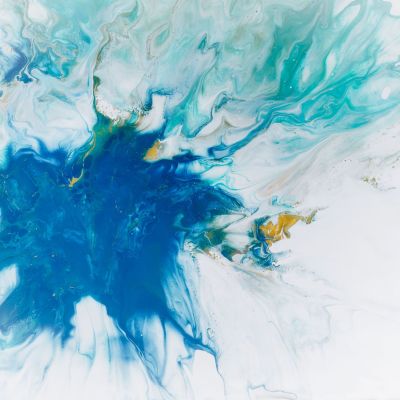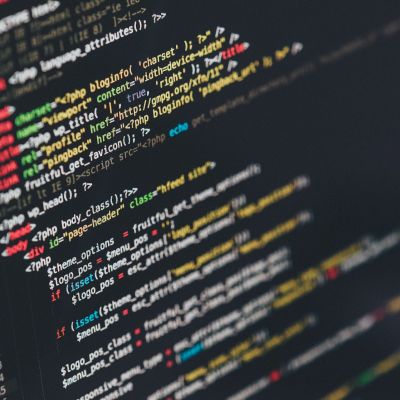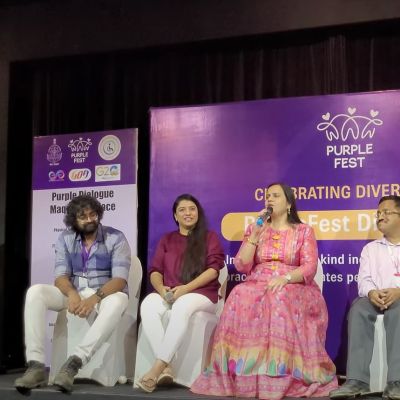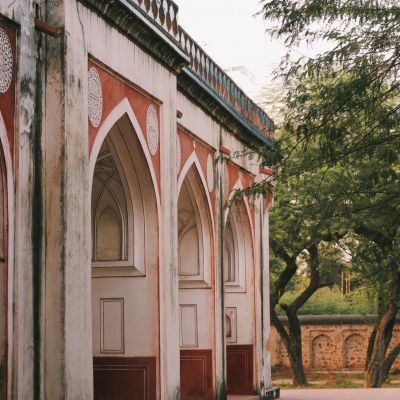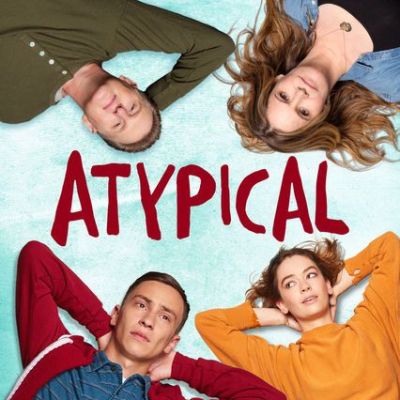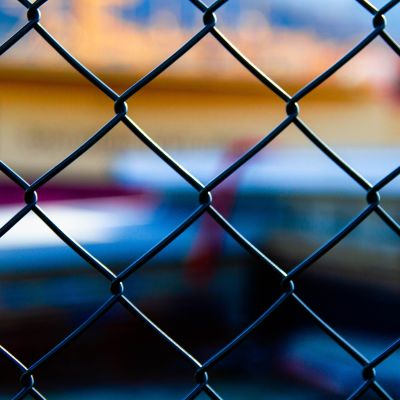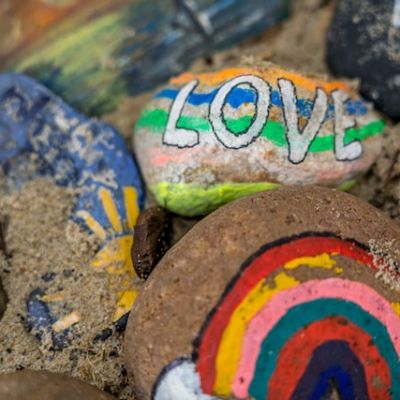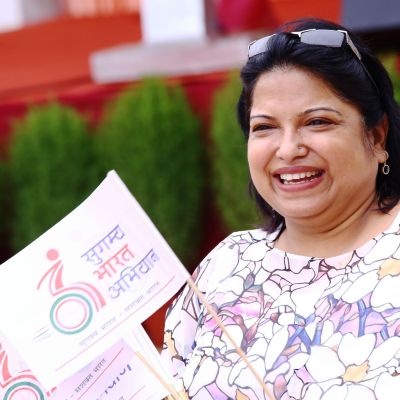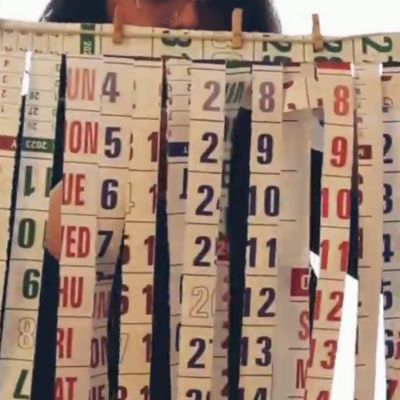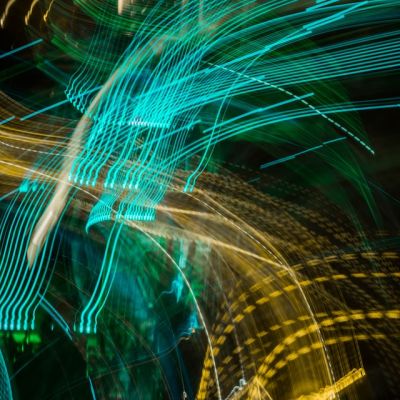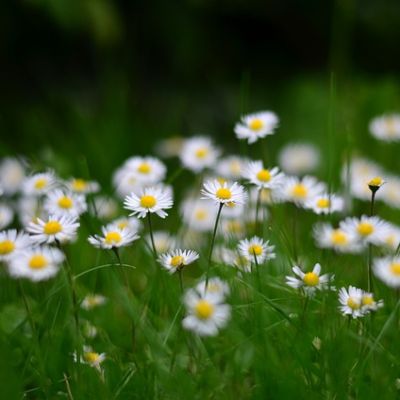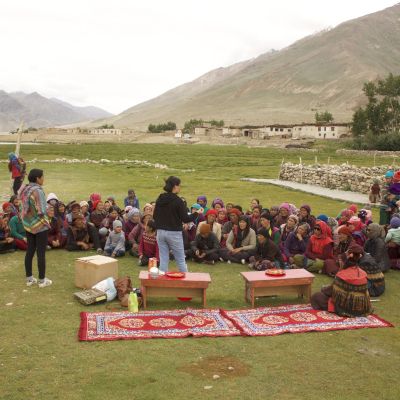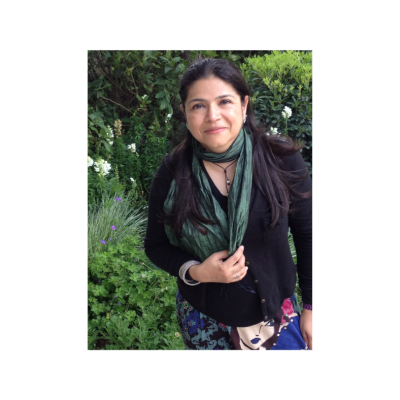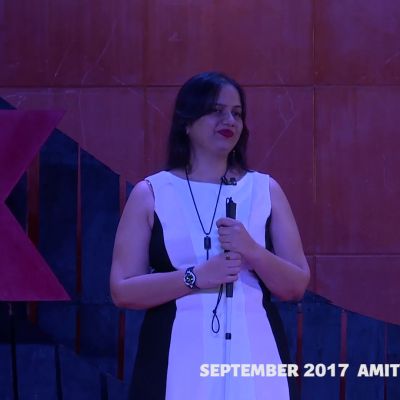Accessibility and Sexuality
If you were the CEO of a company and your office were on the 40th floor of a building in…
We had gathered to [discuss] digital self-determination for people with disabilities… focusing on its core component: the self. How can I be myself in digital spaces? What gives me more of a sense of self in these spaces? How can design, technology and policy contribute to helping me determine myself in digital spaces?
The linkages between access, health, violence, the law, workplaces, gender and sexuality are really high and that’s why we all today—whether we are working on street accessibility, education, disability and employment—need to bring and build our collective understanding around gender and sexuality, keeping it at the core of our work with people, youth, and women with disabilities.
We are two boys in our early twenties
who can read touch like that, who have broken into
a 200-year-old mansion, without permission,
to see from above where people like them go
after 377 has been read down only for those
who can stay behind closed doors — in the custody
of cheap hotels, or houses that welcome nights
with the sound of latches closing.
Sam is an 18-year-old boy who believes that he is ready to have a girlfriend. He is on the autistic…
शायद ये मेरा ख़ुद को यह समझाने और भरोसा दिलाने का प्रयास था कि हो न हो, मैं क़्वीयर लोगों के इस समाज का अभिन्न अंग हूँ और अगर मैंने परेड में लगने वाले सभी नारे याद कर लिए, उनकी बोलचाल के शब्द रट लिए, तो अगले साल की परेड मेरे लिए बहुत अलग होगी और मैं इसमें बढ़-चढ़ कर भाग ले पाऊँगी।
सामाजिक तौर पर अनेक उपेक्षित समूहों के लोगों को अपनी यौनिकता सिद्ध करने में अलग-अलग कठिनाईओं, क्षोभ, और दुख का सामना करना पड़ता है, लेकिन मेरे लिए तो यौनिकता के बारे में चर्चा कर पाना एक बौद्धिक कार्यकलाप के तौर पर सामने आया, एक ऐसा विषय जिस पर आसानी से रचनात्म्क चर्चा करना संभव था। सामाजिक विशेषाधिकार कुछ ऐसे ही काम करते हैं।
Many disabled people in India live with their parents and any expression of sexuality is suppressed as a rule within the confines of their homes. Sexual desires of persons with disabilities are seldom a priority issue for families or civil society. More is said through silence than words. Be grateful that you are alive. Isn’t that enough?
Self-care is influenced by the environment we inhabit, the way we relate to others, the way we negotiate with other living beings or structures. Self-care is also interlinked with other types of care – whether that is in community resources, psychosocial support, engagement with medical and health care institutions, and of course in collective agency and solidarity.
The artwork with its process video titled ‘Unmaking of a Calendar’ is an attempt to challenge the ableist lens through which we observe accessibility to sexuality.
Who is this that works my hand?
Who is this that moves my pen?
Touch is a beetle creeping on this foreign thing
That wears my body like an evening.
“City-living gave me talons and claws, but now I want to put those away. I want something else. I want softness. I want grass under my feet. I want the fist in my stomach to slowly unclench. I want the garden of my childhood to get lost in play while letting sunlit hours pass over to rosy dusk.”
Ladakh is famous for its beautiful mountains, big monasteries and unique culture and traditions. Thousands of tourists visit every summer…
“इन युवा महिलाओं नें तो हमारे विचारों को और आगे तक पहुंचाया है, और महिलाओं द्वारा सार्वजनिक स्थानों तक पहुँच पाने के नए आंदोलन खड़े किए हैं। इसमें उनका देर रात तक बाहर रहना, महिला हॉस्टल में लगाई जा रही समय की पाबंदियों को ठुकराना, और महिला शौचालयों और सार्वजनिक यातायात तक अधिक सुलभता पाने की मांग करना शामिल है।”
Disability rights activist and comedian Nidhi Goyal busts myths and stereotypes about disability.

